Last week, my daughter Aviv walked into a public bathroom and found a Palestinian cleaner at work, humming to herself. Suddenly, a voice from within one of the stalls cries out in rage, “You’re singing, huh? Probably celebrating the terror attack in Istanbul!” The Palestinian woman did not respond, and then, from the stall, “I’ll burn you alive!!!” Aviv protested to the voice in the stall, the
cleaner moved on with her work, still humming. It ended there, but it’s only beginning out here. With nearly half of polled Israelis supporting transfer or expulsion of Arabs, the flames of hatred are spurting ever higher.
And now they’re coming after “Breaking the Silence.” Like smashing the mirror when you don’t like what you see there. This brave organization, offering soldiers a chance to debrief, to speak their experience of being occupiers and to share that experience with the public. Now Breaking the Silence are branded “traitors,” they are accused of giving away trade secrets. I’ve seen no security breaches in the soldiers’ testimonies, but yes, Breaking the Silence points to the most guarded secret in the nation….that occupation is eating away at the soul of our youth, forcing them to do things they’ll regret their whole lives. That, with occupation embedded in our way, we have become a violent people, that we drive our cars like weapons, that we will do anything not to appear to have been had. When in fact we are all being had, daily, as we drag on in our 49th year of occupying the lives of nearly 4 million Palestinians. We seem to believe that this can go on endlessly, that it will not explode in our faces, again.
On Friday, we met at the Gush Etzion Junction, where so many of the knifings, car-rammings, and killings have happened. We gazed into the barrels of the tense soldiers’ rifles pointed at us from behind sandbags as we swung around the traffic circle. Just 200 meters from the junction, the “Roots” encampment was filling with people – Palestinians from the area, and the family and followers of Rabbi Menachem Froman, a settler leader who sought peace until his death three years ago. Hugs and smiles from the glowing faces of these gentle religious men and women and their babies, as we sat down to listening circles, to share what is in our hearts. Sulha activists were asked to facilitate the circles, and settlers, mainstream leftists, and Palestinians listened devotedly to each other.
This all shook my paradigm, I’ll tell you. Settlers, glowing their humanity, sharing lunch with their Palestinian neighbors. Rabbi Froman would often say, “The Land of Israel does not belong to the people of Israel…. The people of Israel belong to the land.” The Palestinians have a parallel saying. Some of Froman’s people have gone out to the Palestinians’ fields to express their solidarity with the farmers, after bands of violent settlers sawed down their olive trees. Froman came to villages to condemn “price tag” extremists’ desecrations of mosques. They are seeking ways to be good neighbors. These young settlers don’t accept that their living in Palestine is an obstacle to peace. Years ago, Froman told Yasser Arafat that he intended to remain in his settlement in Tekoa, even after establishment, in a peace settlement, of Palestinian rule. Arafat warmly promised to appoint him minister of settler affairs in his future government. An alternative scenario. Perhaps even Arafat saw possibilities beyond two states for two peoples.
We all need to be re-thinking our thinking. It’s tough, like asking fish to observe the sea in which they’re swimming. We’ll have to stretch, like those flying fish that leap and whisk above the water’s surface. We need to re-think the “solution.” And we leftists must also look deeper to re-think our way of approaching people. For so long, we have clung to only the two-state solution, adamantly insisting that this is the only way, disparaging those who disagree, comfortable in our righteousness, which has only poured fuel into the fires of hatred among those who disagree. At the “Beyond Persuasion” project we seek to unlock the secrets and develop the skills of being with people in a way that opens space for us all to become peacemakers, which will only be possible when we acknowledge even the settlers’ longing for peace. Together with some colleagues, we’ve been doing workshops for activists and educators to assist them in creating new approaches to reaching out to the other, to the people with strong right-wing views, the zealots, and the moderate, fearful, security-obsessed citizens.
This a long haul. To rescue Israeli society from our drift to intolerance, ever-mounting xenophobia, resignation about the future, with a prime minister who promises that “we will live by the sword forever.” We require an awakening, and in approaching our fellow Israelis, we will have to acknowledge our own uncertainty as we grope to define the road forward. As they say in discussions of “nature vrs. nurture,” if we learned to be frightened and violent, we can also un-learn these distortions and replace them with courage and the will to resolve conflict in humane, hope-rendering ways. The status quo is not a choice. The future is in our hands.
Yoav Peck is director of the Sulha Peace Project
He blogs at www.jerusalemheart.wordpress.

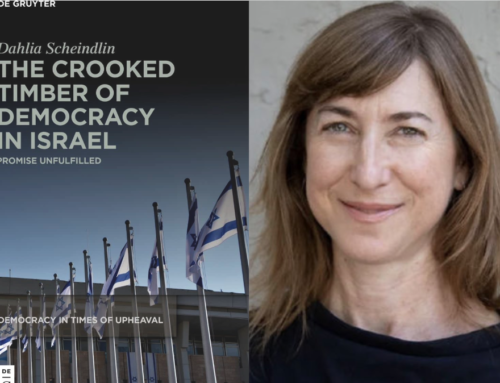
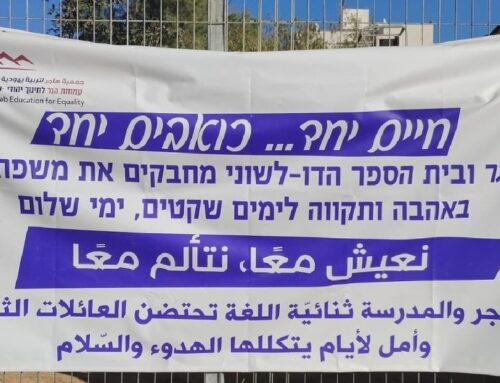
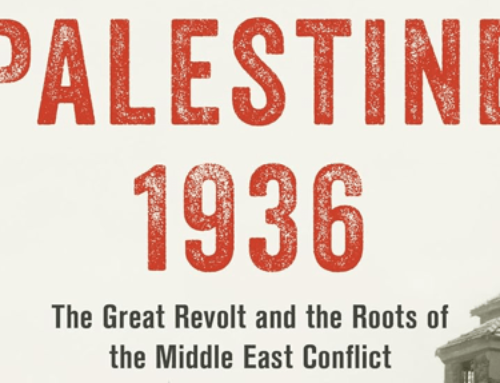
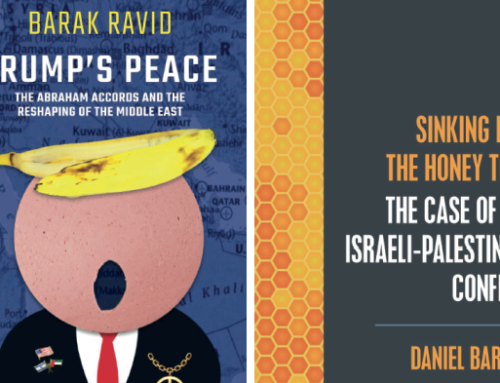
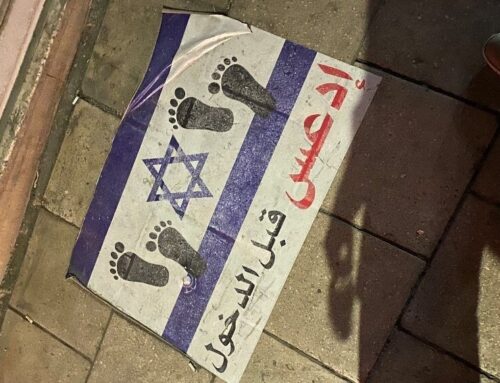
Yes, Jews and Palestinians speaking/listening/collaborating for peace…that is indeed the way to prepare for negotiations that are inclusive, that hold the potential to address the interests and security of multiple constituencies. However, it is not a necessary corollary to jump to the conclusion that Two States is Not the solution. It takes fortitude to remain open to multiple scenarios without closing the door on any one. The values and perspective driving the Two State vision remain strategic and pragmatic. Let’s build momentum for the civil society conversations to enter the sphere of politics for both peoples.
I agree with Molly Freeman.